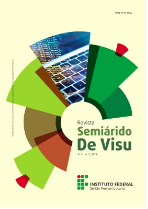Therapeutic Potential of Psilocybin-Assisted Therapy in Hospice and Palliative Care
Visualizações: 233DOI:
https://doi.org/10.31416/cacto.v5i1.1448Palavras-chave:
Cuidados paliativos, Hospitais, Psilocibina, AutotranscendênciaResumo
A terapia assistida por psilocibina (TAP) ganhou reconhecimento como uma intervenção inovadora em cuidados paliativos e hospitais, demonstrando potencial para mitigar o sofrimento psicológico, espiritual e existencial vivenciado por pacientes com doenças graves. Este artigo explora o papel da TAP nesses ambientes de cuidados, enfatizando sua influência em várias dimensões do sofrimento humano, conforme apoiado por pesquisas recentes e pela Teoria da Autotranscendência. Administrada em um ambiente controlado, a psilocibina facilita as experiências transformadoras, contribuindo para a redução da ansiedade e promovendo a aceitação da mortalidade. Estudos sugerem que esses efeitos terapêuticos estão intimamente ligados a experiências místicas induzidas pela substância, que aumentam o senso de conexão e significado da pessoa. Além disso, a Teoria da Autotranscendência fornece um modelo conceitual para entender como a TAP pode apoiar o desenvolvimento pessoal e o bem-estar, mesmo em contextos de vulnerabilidade. Ela ressalta que o bem-estar vai além do mero alívio do sofrimento, representando um processo evolutivo de transformação e aceitação. Apesar de sua promessa, a aplicação clínica da TAP continua limitada por desafios éticos, regulatórios e culturais. Para enfrentar esses obstáculos, são necessárias iniciativas de colaboração, treinamento especializado para profissionais e esforços de pesquisa ampliados para desenvolver protocolos padronizados, seguros e eficazes. Em última análise, a TAP surge como uma abordagem terapêutica valiosa capaz de unir ciência e espiritualidade para melhorar a qualidade de vida dos pacientes durante períodos de profunda vulnerabilidade. Ao integrar essa modalidade, os cuidados paliativos e hospitais podem estender seu escopo além dos tratamentos biomédicos tradicionais, oferecendo alívio do sofrimento no contexto de doenças graves e terminais.
Referências
GARCIA, A. C. M.; BONIFÁCIO, M. C. A. C.; MAIA, L. O. Contributions of the compassionate care approach to psychedelic-assisted therapies in hospice and palliative care. Progress in Palliative Care, Publicado online em 10 jul. 2024. DOI: https://doi.org/10.1080/09699260.2024.2374602.
GARCIA, A. C. M.; MAIA, L. O.; REED, P. G. Exploring psychedelics for alleviating existential and spiritual suffering in people with serious illnesses: Links to the theory of self-transcendence. Journal of Holistic Nursing, Publicado online em 29 maio 2024. DOI: https://doi.org/10.1177/08980101241257836.
GRIFFITHS, R. R.; JOHNSON, M. W.; CARDUCCI, M. A.; et al. Psilocybin produces substantial and sustained decreases in depression and anxiety in patients with life-threatening cancer: A randomized double-blind trial. Journal of Psychopharmacology, v. 30, n. 12, p. 1181–1197, 2016. DOI: https://doi.org/10.1177/0269881116675513.
GROB, C. S.; DANFORTH, A. L.; CHOPRA, G. S.; et al. Pilot study of psilocybin treatment for anxiety in patients with advanced-stage cancer. Archives of General Psychiatry, v. 68, n. 1, p. 71–78, 2011. DOI: https://doi.org/10.1001/archgenpsychiatry.2010.116.
HUI, David; NOORUDDIN, Zohra; DIDWANIYA, Neha; et al. Concepts and definitions for "actively dying," "end of life," "terminally ill," "terminal care," and "transition of care": a systematic review. Journal of Pain and Symptom Management, v. 47, n. 1, p. 77-89, 2014. DOI: 10.1016/j.jpainsymman.2013.02.021.
JULIÃO, M.; ANTUNES, B.; NUNES, B.; SOBRAL, M. A.; CHAVES, P.; RUNA, D.; et al. Measuring total suffering and will to live in an advanced cancer patient using a patient-centered outcome measure: a follow-up case study. Journal of Palliative Medicine, v. 23, n. 5, p. 733–737, 2020. DOI: https://doi.org/10.1089/jpm.2019.0137.
MAIA, L. O.; BEAUSSANT, Y.; GARCIA, A. C. M. The therapeutic potential of psychedelic-assisted therapies for symptom control in patients diagnosed with serious illness: a systematic review. Journal of Pain and Symptom Management, v. 63, n. 6, p. e725-e738, 2022. DOI: https://doi.org/10.1016/j.jpainsymman.2022.01.024.
PALITSKY, R.; KAPLAN, D. M.; PEACOCK, C.; ZARRABI, A. J.; MAPLES-KELLER, J. L.; GRANT, G. H.; DUNLOP, B. W.; RAISON, C. L. Importance of integrating spiritual, existential, religious, and theological components in psychedelic-assisted therapies. JAMA Psychiatry, v. 80, n. 7, p. 743–749, 2023. DOI: https://doi.org/10.1001/jamapsychiatry.2023.1554.
RADBRUCH, Lukas; DE LIMA, Liliana; KNAUL, Felicia; WENK, Roberto; ALI, Zulfiqar; BHATNAGHAR, Sushma; BLANCHARD, Christian; BRUERA, Eduardo; BUITRAGO, Rodrigo; BURLA, Carlos; CALLAWAY, Michael; MUNYORO, Elisha; GÓMEZ-BATISTE, Xavier; HORTON, Richard; LOHMAN, Diederik; LYNCH, Tom; MORI, Masakazu; MOSOIU, Daniela; PETTUS, Katherine; PASTRANA, Tania. Redefining palliative care—a new consensus-based definition. Journal of Pain and Symptom Management, v. 60, n. 4, p. 754-764, 2020. DOI: https://doi.org/10.1016/j.jpainsymman.2020.04.027.
RATTNER, M. ‘Total pain’: reverence and reconsideration. Frontiers in Sociology, v. 8, p. 1286208, 2023. DOI: https://doi.org/10.3389/fsoc.2023.1286208.
REED, P. G. Theory of self-transcendence. In: SMITH, M. J.; LIEHR, P. R.; CARPENTER, R. D. (ed.). Middle range theory for nursing. 5. ed. Springer, 2024. p. 103-124.
ROSS, S.; BOSSIS, A.; GUSS, J.; et al. Rapid and sustained symptom reduction following psilocybin treatment for anxiety and depression in patients with life-threatening cancer: A randomized controlled trial. Journal of Psychopharmacology, v. 30, n. 12, p. 1165–1180, 2016. DOI: https://doi.org/10.1177/0269881116675512.
SCHIPPER, S.; NIGAM, K.; SCHMID, Y.; et al. Psychedelic-assisted therapy for treating anxiety, depression, and existential distress in people with life-threatening diseases. Cochrane Database of Systematic Reviews, v. 9, n. 9, CD015383, 2024. Publicado em: 12 set. 2024. DOI: https://doi.org/10.1002/14651858.CD015383.pub2.
STEINHORN, D. M.; DIN, J.; JOHNSON, A. Healing, spirituality and integrative medicine. Annals of Palliative Medicine, v. 6, n. 3, p. 237-247, 2017. DOI: https://doi.org/10.21037/apm.2017.05.01.
SULLIVAN, D.; PALITSKY, R. An existential psychological perspective on the human essence. In: VAN ZOMEREN, K.; DOVIDIO, J. F. (ed.). The Oxford handbook of the human essence. Oxford: Oxford University Press, 2018. p. 21–34.
Downloads
- PDF (English) 135














